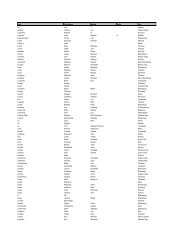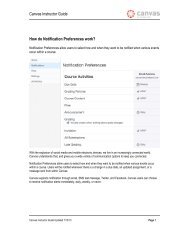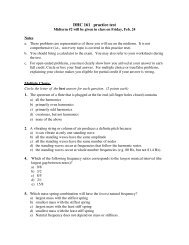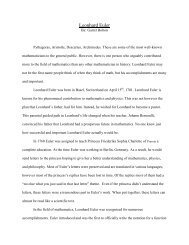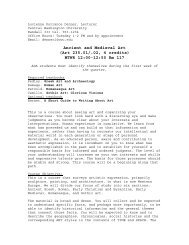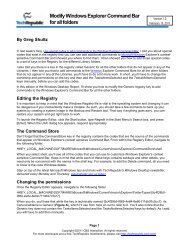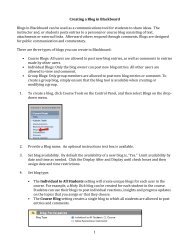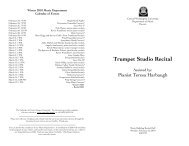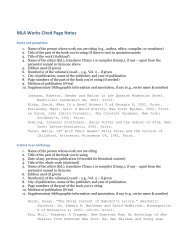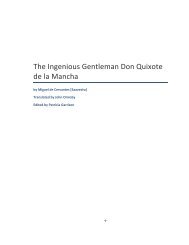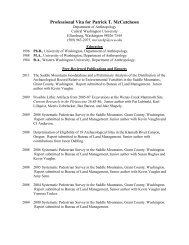THE COURAGE OF TURTLES - Central Washington University
THE COURAGE OF TURTLES - Central Washington University
THE COURAGE OF TURTLES - Central Washington University
You also want an ePaper? Increase the reach of your titles
YUMPU automatically turns print PDFs into web optimized ePapers that Google loves.
Orwell 7<br />
GEORGE ORWELL<br />
POLITICS AND <strong>THE</strong><br />
ENGLISH LANGUAGE<br />
Throughout his career as a journalist, essayist, and novelist, George Orwell (1903-<br />
1950, born Eric Blair) was concerned with political injustice in both totalitarian and<br />
democratic governments. Orwell saw the misuse of language as a tool for political<br />
oppression. In the following selection, from Shooting an Elephant and Other Essays,<br />
Orwell describes the reciprocal relationship between cloudy thought and awkward<br />
writing and prescribes ways in which we can both think and write more clearly.<br />
Most people who bother with the matter at all would admit that the English<br />
language is in a bad way, but it is generally assumed that we cannot by<br />
conscious action do anything about it. Our civilization is decadent and our<br />
language—so the argument runs—must inevitably share in the general collapse. It<br />
follows that any struggle against the abuse of language is a sentimental archaism, like<br />
preferring candles to electric light or hansom cabs to aeroplanes. Underneath this lies<br />
the half-conscious belief that language is a natural growth and not an instrument which<br />
we shape for our own purposes.<br />
Now, it is clear that the decline of a language must ultimately 2 have political and<br />
economic causes: it is not due simply to the bad influence of this or that individual<br />
writer. But an effect can become a cause, reinforcing the original cause and producing<br />
the same effect in an intensified form, and so on indefinitely. A man may take a drink<br />
because he feels himself to be a failure, and then fail all the more completely because he<br />
drinks. It is rather the same thing that is happening to the English language. It becomes<br />
ugly and inaccurate because our thoughts are foolish, but the slovenliness of our<br />
language makes it easier for us to have foolish thoughts. The point is that the process is<br />
reversible. Modern English, especially written English, is full of bad habits which spread<br />
by imitation and which can be avoided if one is willing to take the necessary trouble. If<br />
one gets rid of these habits one can think more clearly, and to think clearly is a necessary<br />
first step towards political regeneration: so that the fight against bad English is not<br />
frivolous and is not the exclusive concern of professional writers. I will come back to this<br />
presently, and I hope that by that time the meaning of what I have said here will have<br />
become clearer. Meanwhile, here are five specimens of the English language as it is now<br />
habitually written.<br />
These five passages have not been picked out because they are 3 especially bad—I<br />
could have quoted far worse if I had chosen—but because they illustrate various of the<br />
mental vices from which we now suffer. They are a little below the average, but are fairly<br />
representative samples. I number them so that I can refer back to them when necessary:



